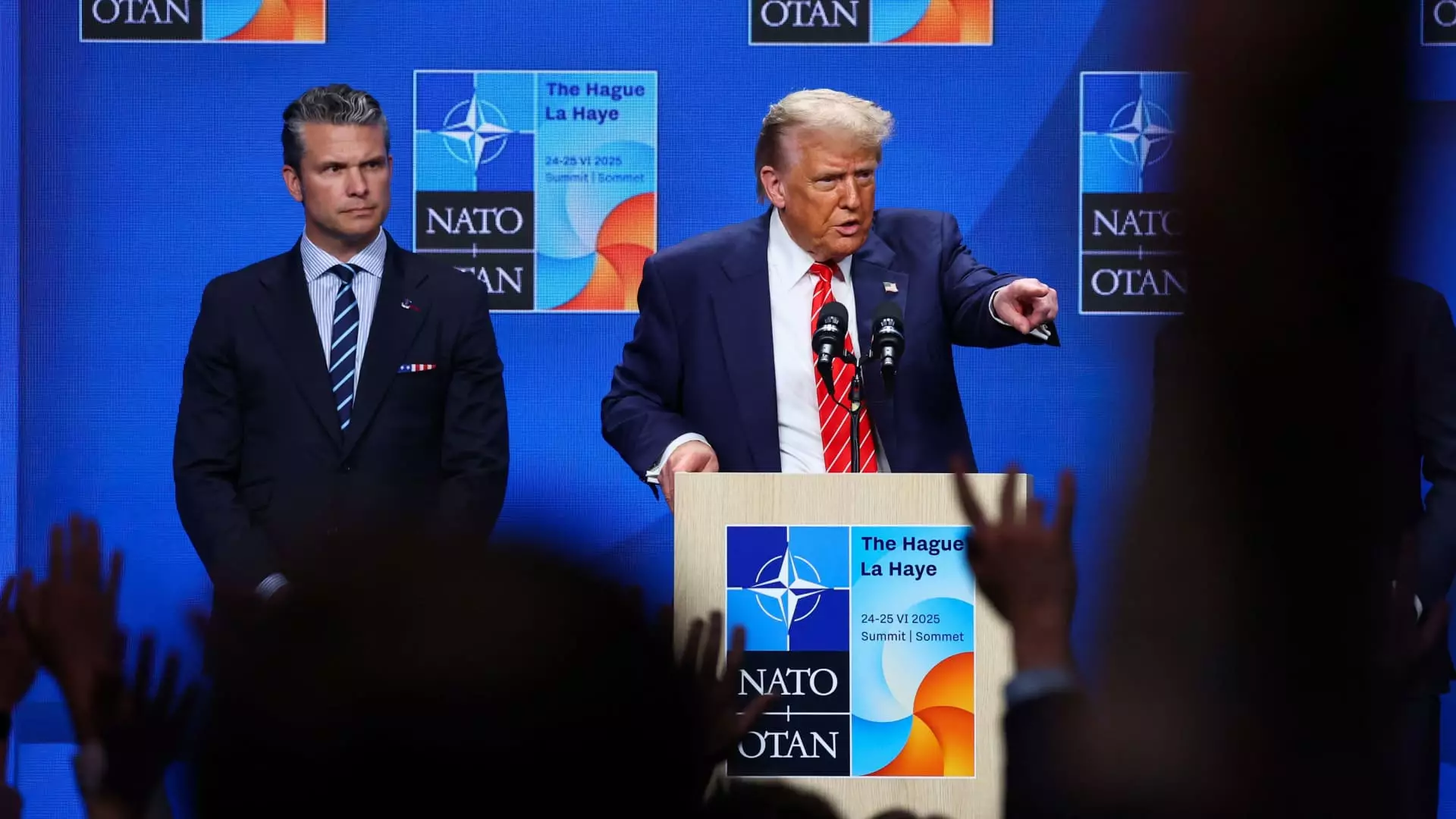In an era where truth seems increasingly slippery, President Donald Trump’s recent claims regarding the annihilation of Iran’s nuclear capabilities stand as a stark example of political bluster overshadowing factual integrity. Standing in front of a global audience at a NATO summit, Trump proclaimed that airstrikes on Iran’s facilities resulted in “total obliteration.” Such statements, while potent for rallying a certain base of support, highlight a troubling tendency in leadership: the elevation of bravado over accountability and the stark reality of geopolitical complexities.
The weight of such declarations creates a false sense of security, yet beneath the surface lies a preliminary intelligence assessment that paints a more sobering picture. Reports indicate that instead of complete destruction, the strikes merely delayed Iran’s nuclear ambitions by a matter of months, not the sweeping setback one would expect from Trump’s roaring rhetoric. This dichotomy between explosive claims and measured assessments reveals a disconcerting dynamic where soundbites prevail over substantive dialogue.
Defensive Posturing and Political Fallout
As the narrative unfolded, the administration’s response was defensive, verging on combative. Trump’s acknowledgment of the existence of the Defense Intelligence Agency’s report—despite its preliminary nature—could easily be interpreted as an attempt to control the narrative rather than an honest engagement with facts. The declaration that the intelligence was insufficient underscores a worrying trend: the dismissal of unfavorable evidence as “fake news” by those in power. Such rhetoric breeds distrust not only in government statements but further erodes public confidence in the institutions designed to protect us.
Press secretary Karoline Leavitt’s denouncement of “anonymous, low-level” leakers signifies a troubling strategy: blame the messengers while simultaneously diverting attention from the underlying issues raised. This approach diminishes the value of constructive criticism and creates an environment where blind loyalty is prized over reasoned debate. Critically, it also reveals the administration’s anxiety regarding dissent and the uncomfortable truths that lie behind its declarations.
The insistence that these airstrikes constituted a remarkable success is as perplexing as it is misleading. Defense Secretary Pete Hegseth’s comments about the immediacy of damage estimates illustrate this desperation to appear strong and decisive amidst an international backdrop of scrutiny. Such posturing, with all of its inherent bravado, serves not to strengthen America’s position globally but rather to weaken it, painting the nation as one that prioritizes showmanship over strategy.
The Alarming Reality of Military Intervention
Moving beyond the political theater, there exists a critical analysis of what military intervention truly achieves. History is littered with examples where swift action was celebrated in the moment, only to reveal long-term consequences that were unanticipated, or worse, ignored. The decision to bomb Iranian sites may uphold the narrative of decisiveness, but what about the collateral damage—both human and diplomatic?
How do these choices affect America’s credibility internationally? The integration of misleading rhetoric with military action risks alienating allies and emboldening adversaries. The immediate satisfaction of seeing explosive results can blur the line between effective foreign policy and catastrophic blunders that spiral out of control. Instances like these compel a reassessment of the metrics by which success is measured. Are we crafting policies based on measurable objectives, or are we merely feeding the insatiable appetite for decisive action regardless of long-term metrics?
Democracy Threatened by Oversight and Accountability
Finally, the refusal to fully disclose intelligence assessments and the deliberate delay of congressional briefings raises questions about oversight in U.S. foreign policy decision-making. When intelligence is kept from elected representatives, it undermines the very essence of democratic governance. Legislators are charged with overseeing actions that can lead to war and loss of life—shouldn’t they possess the full picture to inform their decisions?
The slippery slope of dismissing valid intelligence assessments not only risks political ambition but also poses a significant threat to democracy itself. Transparency must be a foundational pillar in a nation that prides itself on governance by the people. As citizens, we must demand accountability that transcends partisan lines, ensuring that our leaders base their actions not on bravado but on a nuanced understanding of the complexities at hand.


Leave a Reply